Sadovaja - Interview
by John Clarkson
published: 26 / 12 / 2003
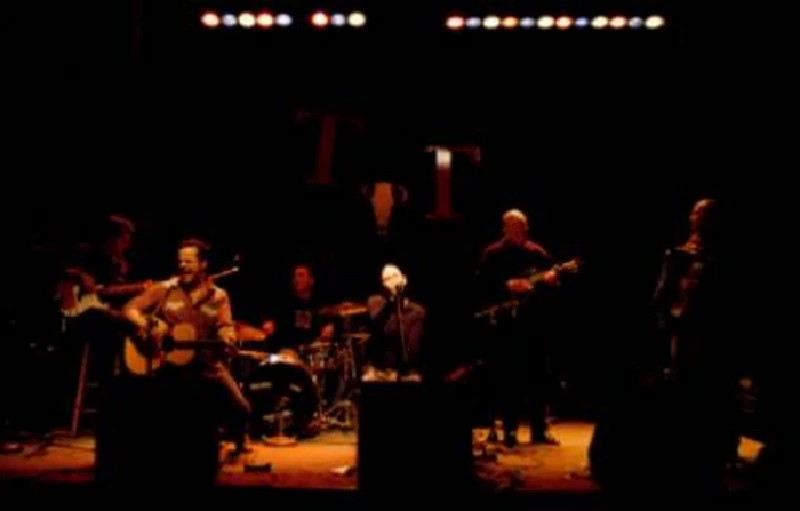
intro
After relocating from San Francisco to Seattle, Ian Parks has recreated his acclaimed alt. country project An American Starlet with an almost entirely new line-up. He and vocalist Liz Green talk to us about their new album, 'The Duchess of Hazard'
When his two previous bands, space rock acts the Rosemarys and the Magnetic, fell apart after their major record label deals turned sour, San Francisco musician Ian Parks decided to abandon music and took off travelling across America. Not able to give up on his resolve entirely, he had packed an acoustic guitar amongst his travelling items. A year after he had written his last song, in the stuff that rock ‘n’ roll myth that is made of, he found himself alone in a trailer in the middle of nowhere on Christmas Day 1999, and, to kill boredom, began playing around with his guitar. By the end of that day he had composed three new songs. Returning to San Francisco with a renewed sense of purpose, Parks decided to give music another shot, but this time strictly on his own terms, and without having to deal with record industry politics. He also vowed never to pay another studio bill. Originally calling his new group Starlet, Parks switched its name to an American Starlet when he discovered there was already another band in Norway with the same name. An American Starlet began life as a consortium, with Parks its only full-time member appearing on vocals and playing an assortment of instruments including the acoustic and electric guitar, the mandolin, the banjo and the fiddle. The group’s debut album, ‘Sweet County Lullabies....’, was released in late 2001 on his own Starlet’s Web label. Featuring another 12 musicians also, and taking in elements of 50’s rock ‘n’ roll, 60’s folk and 90’s grunge as well as roots music, it was recorded on an “ad hoc” basis entirely in the band’s own practice space and simply with whoever was available. Shortly after ‘Sweet Country Lullabies...’ was released, the restless Parks relocated from San Francisco 1500 km North to the more musically fertile stomping ground of Seattle. He has since recreated An American Starlet, this time as a regular band, and with an almost entirely new set of musicians. The group’s second album, ‘The Duchess of Hazard’ came out in November, again on Starlet’s Web. While incorporating together many of the elements of the previous album, it is a more focused work than its predecessor, and also unearths for the first time the soaring, dynamic voice of Liz Green, Parks’ former room mate, who takes lead vocals on two songs and co-shares singing duties with him on several of the album’s other nine tracks. A sometimes harrowing record, it has been described by one early critic as creating “the perfect soundtrack for the brokenhearted and lovelorn’ and tells of Parks’ often disastrous relationships with women, but also of his ultimate redemption through music. Pennyblackmusic caught up with Parks, back for his second interview with us, and Green, there for her first, to talk about ‘The Duchess of Hazard’. PB : The album was originally to be called ‘Dear Lord, Let This Dirt Redeem Me’. Why did you decide to switch titles and to call it ‘The Duchess of Hazard’ ? IP : The song ‘The Dirt’ , with that lyric “Dear Lord, Let This Dirt Redeem Me”, is still on there. Liz and I were driving around one day though, and I came up with this idea that ‘The Duchess of Hazard’ would be a funny name for the album. I then started to think about it some more, but not in a funny way, but more in a kind of poetic way. I have a bad habit of getting involved with not the best women in the world, so I thought the Duchess of Hazard was a nice, plain phrase to kind of describe some of my relationships. A lot of the songs on the record are about that subject in particular. I thought that it was more fitting title for the whole record, whereas before, when I had originally thought about the second record, I was thinking more about a record about redemption through fucking up or whatever, and having your mistakes lead you to a better place. While that’s what ‘The Dirt’ is about, most of the songs on there are inspired by these so-called Duchesses of Hazard. PB : The title song, ‘The Duchess of Hazard’, is about “the greatest love I have ever known”. Nearly all the songs on the album are character-based and could be about described about being about the greatest love in one form or another, whether it is, romantic, sexual or spiritual. It is the first track on the album. Do you see that song as providing as a prelude to the rest of the album ? IP : Yes ! That’s why I wanted it to be first. It is like the preface. When I say “ the greatest love I have ever known”, I don’t really think it speaks of anyone in particular, but more of this idea of love that I have and my maybe unrealistic ideas of what love is supposed to be. PB : Several critics have picked up on the fact that the album is “a grower”, and needs to be listened to several times to be fully appreciated. Why do you think that they have said that ? LG : A lot of heavy-hitting, or emotionally-charged albums often find themselves characterised, as “growers”. You have to sometimes step back from them, before you can listen to them a little more and start to get the idea of what is really going on. The lyrics on ‘The Duchess of Hazard’ are very potent, so you have absorb them over a period of time. IP : I guess it’s like blue cheese. It’s definitely not for everybody (Laughs !) PB : It’s a very well sequenced album, with a natural beginning, a middle and conclusion.Did you spend a lot of time thinking about which track would go where ? IP : Yeah, we did. It was something we discussed it a lot. We tried different sequences. Since I did it all on a Macintosh, we were able to throw it into i-tunes and it was really easy to change the sequences. I burned off various versions of the album on CDR for the other members of the band. Liz and I combined together to come up with the final sequence. We gave it to other people in the group and we gave them time to decide whether or not they liked it and they all came back and said that they felt that it flowed well. I wanted the album to have a kinetic energy to it. I wanted to space the slow songs and intermittingly put in the quicker ones , so that we could bring people listening to the record up and then down and then up again. PB : Your first album ‘Sweet Country Lullabies...’was the work of what you have described as “a musical family” with members coming and going depending on when they were available. This second album involves performances from a regular band. How do you think that affected the recording and changed it from the first one ? IP : It was much better, because I had people who weren’t doing me favours. They had a vested interest in the songs. I didn’t write anyone’s parts for them. I wanted everybody to feel like it was their record, and not just mine, and everybody had their input and their say. We had practiced so much that most of what you hear is cut live. Rhythmically it just feels much more solid. On some of the cuts on ‘Lullabies’, I listen to them now and I can hear the groove getting out of the swing or something similar because I got my friend to come in and play drums for the afternoon or whatever. He wasn’t getting paid, and I got the best I could out of his time, whereas this time everybody wanted to make the best record we possibly could. PB : You planned originally to involve a lot of people who had been in San Francisco with you and who had worked on ‘Sweet Country Lullabies’, but in fact only ended up using two of them, Scott Appleton and Jared Matt Greenberg. Who is Scott Appleton ? IP : He’s a pedal steel player. He is still based in San Francisco, but comes up here from time to time just to do shows with us. The way I met him was through the Magnetic. His son was our drummer. When we were first called Starlet, before we changed the name, he was one of the first people I asked to be a member of the band because I really wanted a pedal steel player. For this album I asked him he would feel about coming up to Seattle to do some tracking, and it also happened to coincide with a show we were playing with Jesse Sykes. He came up and did the show and spent five days cutting tracks. He is a really great guy. PB : Jared Matt Greenberg was in both the Rosemarys and the Magnetic with you, and made large contributions to the last album. He appears playing piano on just two tracks this time, ‘When We Sleep’ and ‘When I Sleep’. IP : It’s actually the same song, and it’s even the same piano take. When I mixed ‘When We Sleep’ I didn’t feel that Jared Matt’s piano featured enough. I really wanted everyone to hear what an amazing piano part it was and so I just tried removing all the other parts except for the piano and my voice. I really liked the way it sounded and so I put that version of the track on the album as well and called it ‘When I Sleep’. PB : You said in the past that you couldn’t conceive of doing an album without Jared Matt. IP : I would still say that to this day. He’s been my best friend for almost twenty years now. PB : What have the been the advantages and disadvantages of moving to Seattle from San Francisco for you both personally and musically? IP : I can’t really think of any disadvantages except for maybe a few girls I met (Laughs !). Musically Seattle is a much better place to be for any kind of musician. It has a very supportive local music audience. We have just played a bill which featured us, the Believers and Christie McWilson at a place called the Triple Door. it is a big venue and tickets were $10 and this was three local bands and it sold out. That kind of thing doesn’t happen in San Francisco. We played in San Francisco for two years to the same 25 people. PB :Liz, you and Ian have been friends for a while, and he actually roomed in your house for a time when he first moved to Seattle. There’s an interesting story about how Ian enlisted you into the band after hearing you sing in a karaoke bar. What is the story there ? LG : Ian had moved into town and it was his first night. We went up to a karaoke bar for somebody’s birthday and I had enough whisky in me to have a wild hair in my butt (Laughs !) and decided to get up to do ‘Bohemian Rhapsody’ and Ian was kind enough afterwards to ask me to be in his band. IP : I was blown away that she could sing it. She channelled Freddie Mercury like you would not believe. PB : Had you any previous experience of singing in bands prior to this ? LG : The only experiences I had of being on stage as an adult were at cover and karoake nights. PB : The other members of the band were all recruited from classified ads. Who are they ? IP : The Gods of Music must have been with me or something. I came into town and I placed an ad in a local magazine called ‘The Stranger’ and the second phone call I got was from this guy Stefan LaMotte who became our drummer, and who happens to be the best drummer I have ever played with in my life . There’s another listings magazine called ‘The Seattle Twain’ and I also placed an ad in that and Todd Gehman, our bass player, answered through that. I had already asked a friend of mine to play bass, so I asked Todd “Do you play anything else ?” and he said “Well, I play a little piano” and I said “If you play the piano, I bet you can play the organ”, so he initially joined the band as our organ player. Todd was in a country band called the Shiners and I went to see them, and I came away really wishing that Todd was our bass player. The guy who was playing bass, although I love him, and he’s still a good friend of mine, just wasn’t right and we had a parting of ways. After that Todd stepped in and started playing bass. The final member of the group, Charley Rowan, is our keyboard player. I met him because my brother has been a musician in Seattle for years and years. As a result of that I get invited to a lot of these music parties, where veteran musicians hang out. I met Charley at one of these and I started talking to him and asked him if he would like to come and play with us and he was into the idea. LG : He actually started out playing accordian with us. IP : That was because we started out by doing just acoustic sets. We then began doing more electric stuff, and, when we got him in on the organ as a result of that, he really started showing what an amazing key player and piano player he is. I got real fortunate this time around with the good musicians we have got. Out of every band that I have been in in my life, this one has the least amount of inner tensions. Rehearsals are always fun. For a lot of people in the band this is their first record, and everybody is really excited now that the album is out and radio stations are beginning to pick it up across the world PB : Liz, you take lead vocals on both ‘The Dirt’ and ‘Half a Heart’. What is your interpretation of both those songs ? LG : I think Ian has a lovely sensibility about human nature and the sad side of humanity. He has this amazing ability to channel emotions,. While ‘The Dirt’ is about redemption and death, and is written from a woman’s perspective, ‘Half a Heart’ comes from a man’s perspective, and is actually written from Ian’s perspective. On it he is lamenting not giving more to someone who deserves it, while on some of the other songs you feel that he is giving his whole heart to people who maybe don’t deserve it. PB : What is the song ‘Queen Elizabeth’ about ? IP : It’s actually an apology (laughs !) I came to this realisation one night that a lot of the really important women in my life were all called Elizabeth. There have been four of them. At the time I wrote it I was dating this girl Liz, but her name was Elizabeth, and I wasn’t very nice to her, and I felt totally shitty about it afterwards. It’s sort of my “I am sorry”. There was another woman involved, and she ended up being one of the Duchesses of Hazard. PB : ‘The Duchess of Hazard’ took a long time to record, nearly a year, didn’t it ? IP : We had four false starts. We weren’t happy with the results and ended up totally scrapping things. When we finally got the good basic tracks down it took about four months including the mixing. PB : Where was the album recorded ? IP : It was recorded in several different places. There are cuts from my basement and the basement of the old house I used to live in with Liz. We did some drum tracks in a real studio in my friend Tito’s house, and we did a lot of the tracking there also. Todd also recently bought a house with a really beautiful artists’ space in it, and that has proved a really good place to record in also. Jared Matt Greenberg’s piano parts were meanwhile recorded down in San Francisco in the same place that ‘Sweet Country Lullabies’ was recorded. PB : You said when you first started out with an American Starlet that you never intended to pay for studio time again. Did you stick to that with this album ? IP : Pretty much so ! I did in fact pay Tito 300 dollars for two full days studio time, and also traded doing some engineering with him. That was only because we didn’t have a space at that time where we could all play at the same time and record, but now we do at Todd’s place and so we won’t do that again. PB : You plan to tour Europe with this album. don’t you ? LG : We’re going to try and do a tour in Europe in the late spring or summer. IP : We’d really like to get on the bills of some of the festivals there. PB : Will the the whole band going out ? IP : It will definitely be the four core people. We consider the four core members to be Liz, Stefan, Todd and myself. Charlie has a family, so it’s harder for him, but if he can come it will be great. If not maybe Jared Matt will be coming with us. We feel strong enough just as the four of us to play in front of anybody, but it’s nice to hear the other sounds too, the organs, the piano and the pedal steel. PB : Do you have any other plans at the moment ? IP : Yes ! We are going to do a split single with a guy named Roach who is out of San Francisco , but who is originally from Virginia. He is a really gifted singer-songwriter, and for the first time ever I am going to give up the engineering and producing rein to Tucker Martine (Seattle producer, who has worked with Jesse Sykes and Transmissionary Six, and also has his own instrumental project, Mount Analog-Ed). We’re talking about that maybe being a collectors’ item. We’re also already six songs into the new album PB : When is that liable to come out ? IP : There was too much time between the other two albums The goal is to definitely have it out by the end of 2004. It is tentatively going to be called ‘Hit’ PB : Thank you
Picture Gallery:-
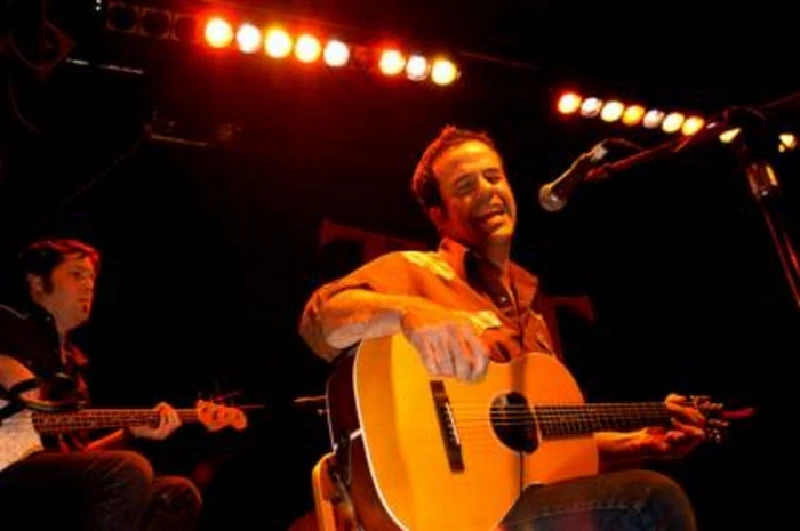
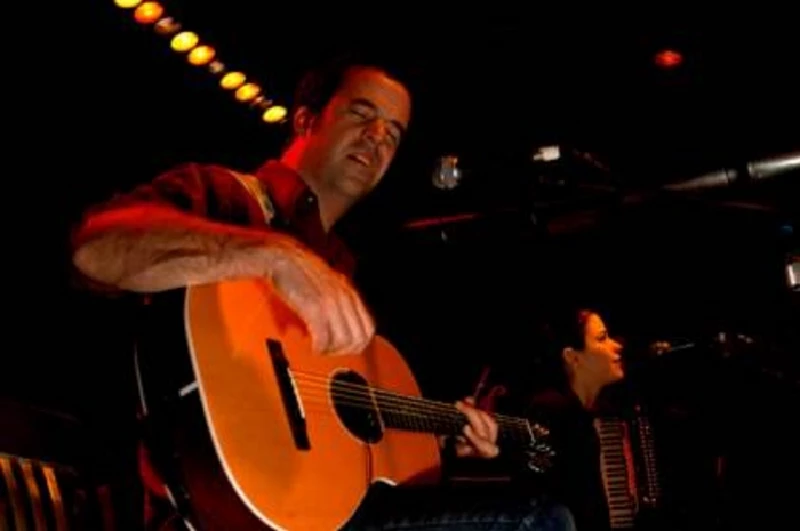

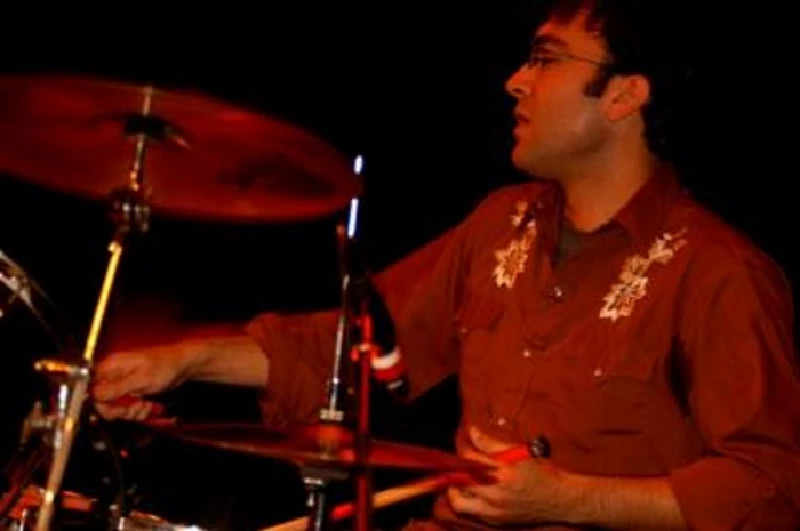
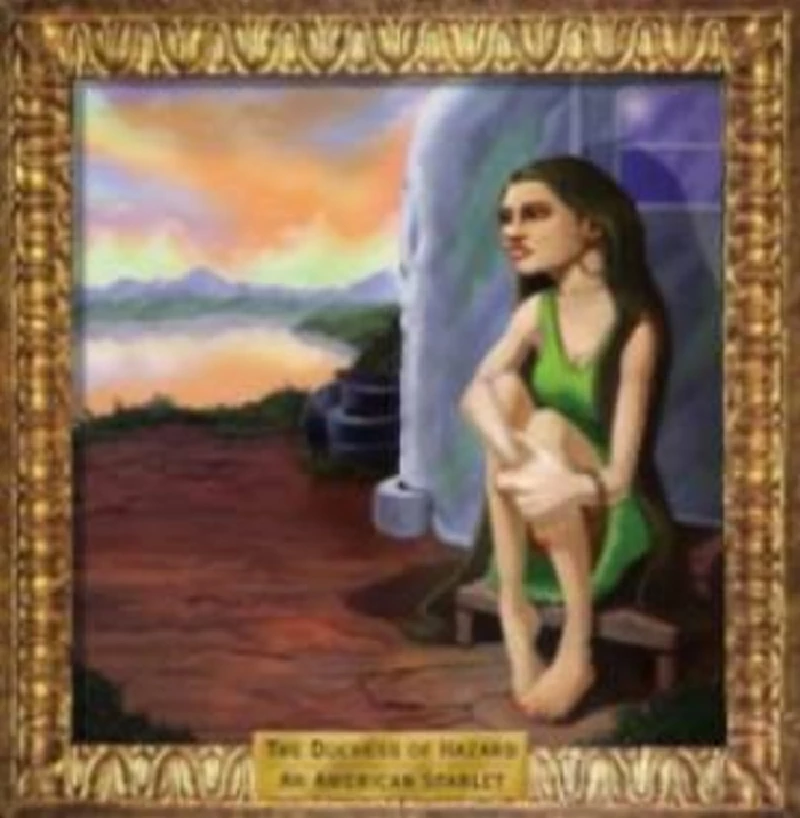
most viewed articles
current edition
John McKay - InterviewRobert Forster - Interview
Cathode Ray - Interview
Spear Of Destiny - Interview
Fiona Hutchings - Interview
When Rivers Meet - Waterfront, Norwich, 29/5/2025
Carl Ewens - David Bowie 1964 to 1982 On Track: Every Album, Every Song
Chris Wade - Interview
Brian Wilson - Ten Songs That Made Me Love...
Shrag - Huw Stephens Session 08.12.10 and Marc Riley Session 21.03.12
previous editions
Heavenly - P.U.N.K. Girl EPBoomtown Rats - Ten Songs That Made Me Love....
Allan Clarke - Interview
Oasis - Oasis, Earl's Court, London, 1995
Manic Street Preachers - (Gig of a Lifetime) Millennium Stadium, Cardiff, December 1999
Barrie Barlow - Interview
Pixies - Ten Songs That Made Me Love...
Beautiful South - Ten Songs That Made Me Love...
Trudie Myerscough-Harris - Interview
Dwina Gibb - Interview
most viewed reviews
current edition
Peter Doolan - I Am a Tree Rooted to the Spot and a Snake Moves Around Me,in a CircleGarbage - Let All That We Imagine Be The Light
Vinny Peculiar - Things Too Long Left Unsaid
Vultures - Liz Kershaw Session 16.06.88
John McKay - Sixes and #Sevens
Little Simz - Lotus
HAIM - I Quit
Morcheeba - Escape The Chaos
Pulp - More
Lapsley - I'm a Hurricane, I'm a Woman In Love
Pennyblackmusic Regular Contributors
Adrian Janes
Amanda J. Window
Andrew Twambley
Anthony Dhanendran
Benjamin Howarth
Cila Warncke
Daniel Cressey
Darren Aston
Dastardly
Dave Goodwin
Denzil Watson
Dominic B. Simpson
Eoghan Lyng
Fiona Hutchings
Harry Sherriff
Helen Tipping
Jamie Rowland
John Clarkson
Julie Cruickshank
Kimberly Bright
Lisa Torem
Maarten Schiethart